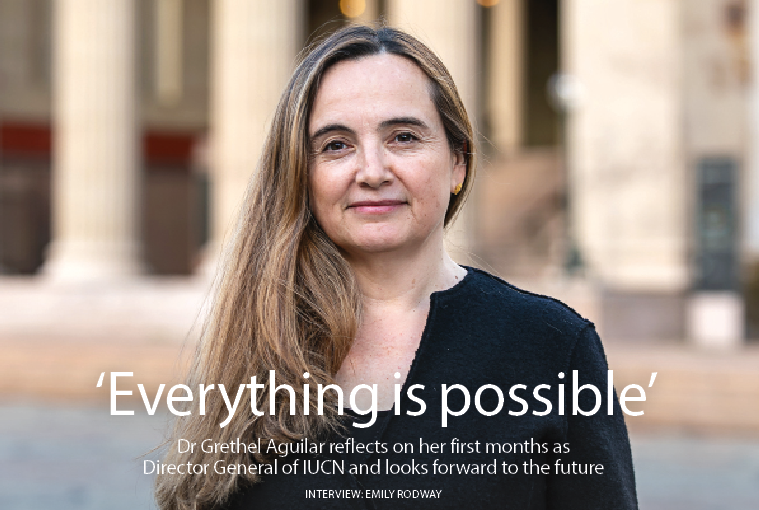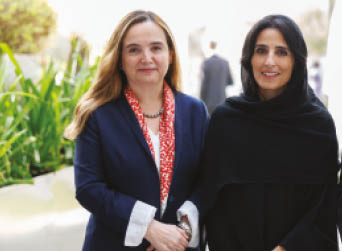When it comes to uniting under the banner of nature conservation and leading the urgent action that the world needs, there is no better organisation suited to the task than IUCN, according to its Director General, Dr Grethel Aguilar.
Although she was appointed to her current position as recently as last October, Dr Aguilar has a long history with the Union, initially representing the Costa Rica Environmental Law Centre as an IUCN Member, and serving on the World Commission on Environmental Law for eight years. In 2005, she became IUCN’s Regional Director for Mexico, Central America and the Caribbean, and later served as IUCN’s Deputy Director General with responsibility for Regions and Outposted Offices, as well as two stints
as Acting Director General.
“The constitution of IUCN is unique,” she says. “We have governments, we have civil society, we have Indigenous Peoples organisations and we have experts. It is a very powerful Union.”
Throughout all these years, Dr Aguilar has witnessed first-hand the passion of IUCN’s regional and national committees, the importance of Member organisations’ work on the ground, the knowledge of experts that come from the Commissions, and the impact of attending international conventions as part of an IUCN delegation.This combination of knowledge and skills, as well as local and international action, allows IUCN to be a leader in tackling the challenges confronting humanity.
“We are at a crossroads where we cannot afford to make the wrong decision,” she says. “The scale of the crisis facing the planet is of such enormity that we need to act correctly. The unique composition of IUCN ensures it is the perfect organisation to convene different voices and show
the way.”
HUMAN BEINGS HAVE THE POWER TO TRANSFORM AND CHANGE – WE HAVE SEEN IT SO MANY TIMES
A vision and a mission
At the IUCN World Conservation Congress in Marseille in September 2021, the Union adopted by democratic vote a programme of work for this decade, the Nature 2030 IUCN Programme. This Programme provides a call to action for people, land, water, ocean and climate.
For Dr Aguilar, this provides an important roadmap for the Union’s work.
“The Programme is clear,” she
says. “You can open the Nature 2030 Programme and see everything the Members decided IUCN needs to focus on for this period. And in 2025, at the IUCN World Conservation Congress, we will assess progress, strengthen the Programme and agree on a 20-year strategic vision for our Union.”
Like IUCN’s Director General, the Nature 2030 Programme is ambitious and, crucially, optimistic about the potential for a better world. “We have to believe everything is possible; that change is possible and that transformation is possible,” emphasises Dr Aguilar.


